Salesforce Review: A Comprehensive CRM for Every Business
 Salesforce Review: A Comprehensive CRM for Every Business
Salesforce Review: A Comprehensive CRM for Every Business
Salesforce Review: A Comprehensive CRM for Every Business
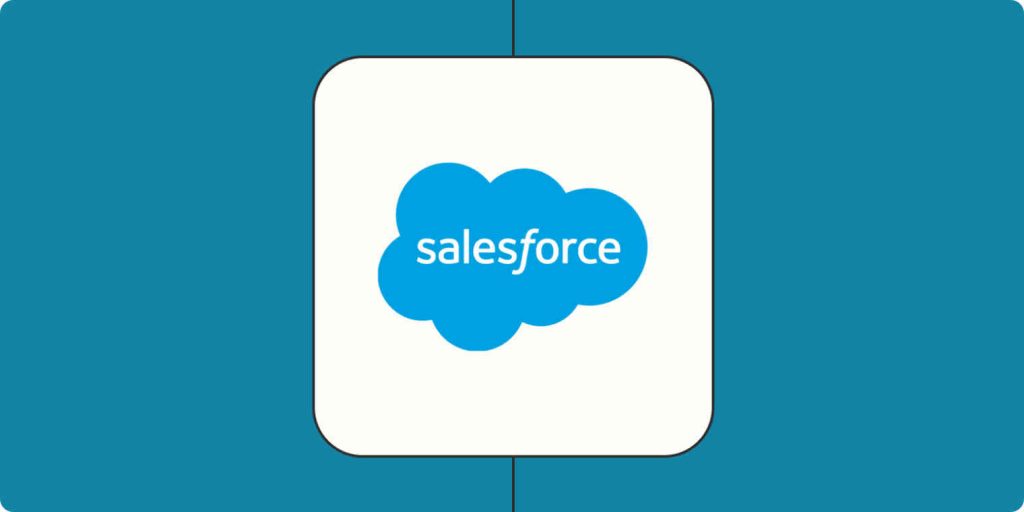
Salesforce Overview:
Salesforce, the world’s leading Customer Relationship Management (CRM) software, has revolutionized how businesses manage their customer interactions and operations. This comprehensive review of Salesforce delves into its myriad benefits, robust features, pricing structures, and overall capabilities.
Salesforce offers a wide range of functionalities, including lead management, sales automation, marketing automation, and customer support, making it a comprehensive solution for businesses of all sizes and industries. Its intuitive interface and customizable workflows ensure a seamless user experience, while its mobile app allows users to access critical data on the go.
The platform’s robust reporting and analytics tools provide valuable insights into sales performance, customer engagement, and overall business health, enabling data-driven decision-making.
Salesforce’s flexible pricing options cater to various business needs, with different plans tailored to accommodate startups, small businesses, and large enterprises. However, its enterprise-level features and associated costs may be more suitable for mid-sized to large organizations.
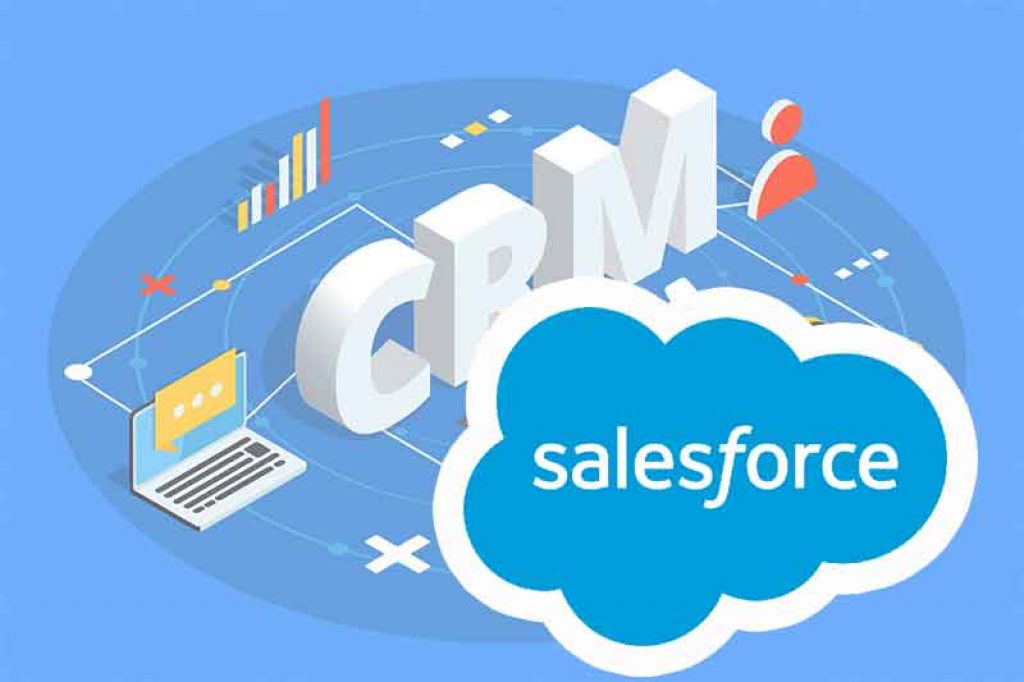
In terms of integrations, Salesforce boasts a vast ecosystem of third-party apps and tools, enabling businesses to extend the CRM’s functionalities and create a unified ecosystem for their operations.
One of Salesforce’s standout features is its AI-powered tool, Einstein, which provides predictive analytics, personalized recommendations, and automation capabilities, elevating the CRM to a higher level of intelligence and efficiency.
Salesforce’s dominance in the CRM market is well-deserved, with its comprehensive features, seamless integrations, and AI capabilities. While it may be a substantial investment for some businesses, its ability to transform sales and customer management processes makes it a top choice for companies seeking to boost productivity and drive growth. Whether for startups or established enterprises, Salesforce remains a powerful ally in the pursuit of enhanced customer relationships and business success.
What is Salesforce?
Salesforce is the world’s leading Customer Relationship Management (CRM) software, providing businesses with a comprehensive platform to manage customer interactions, sales processes, marketing efforts, and customer support. Founded in 1999, Salesforce has grown to become a global leader in cloud-based CRM solutions.
At its core, Salesforce is designed to help businesses build and maintain strong customer relationships by centralizing customer data, enabling personalized interactions, and streamlining sales and marketing processes. It offers a wide range of functionalities, including lead management, sales automation, marketing automation, and customer support, tailored to meet the diverse needs of businesses of all sizes and industries.
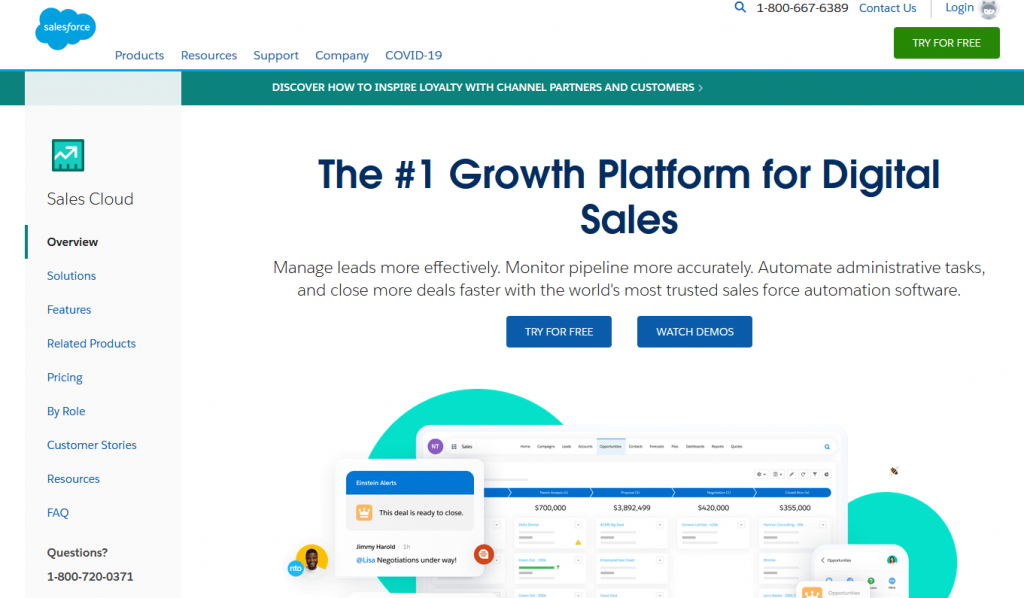
Salesforce’s intuitive interface and customizable workflows make it user-friendly and adaptable, while its mobile app ensures access to critical data on the go. The platform’s robust reporting and analytics tools provide valuable insights for data-driven decision-making and performance tracking.
Salesforce’s vast ecosystem of third-party apps and integrations allows businesses to extend their functionalities and create a cohesive ecosystem for their operations. With its AI-powered tool, Einstein, Salesforce introduces predictive analytics and automation capabilities, further enhancing efficiency and business intelligence.
Overall, Salesforce empowers businesses to drive growth, optimize customer relationships, and stay competitive in today’s dynamic business landscape.
Is Salesforce Right For You?
Whether Salesforce is right for you depends on your specific business needs, goals, and resources. As the leading CRM solution in the market, Salesforce offers a wide range of powerful features and functionalities that can benefit businesses of all sizes and industries.
If your business requires a comprehensive and customizable CRM platform to manage customer interactions, sales processes, marketing campaigns, and customer support, Salesforce can be an excellent fit. Its intuitive interface and user-friendly design make it accessible to users of all skill levels, while its mobile app enables remote work and real-time access to critical data.
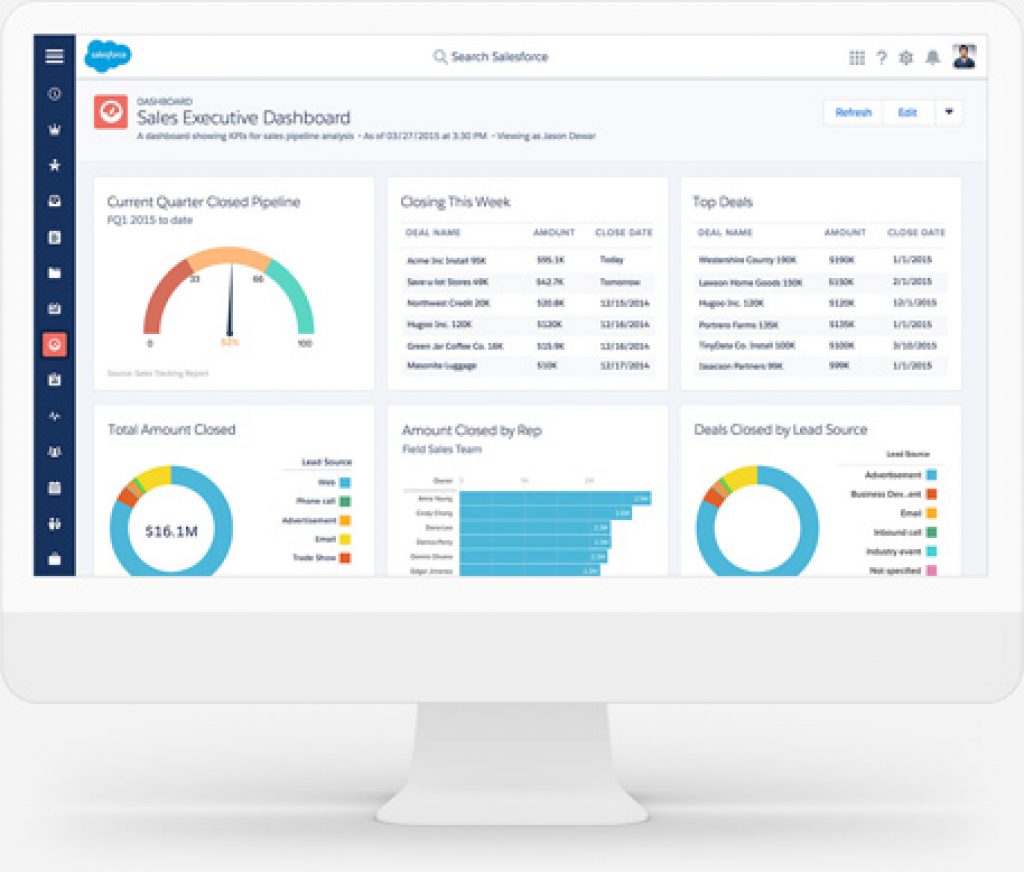
Salesforce’s AI-powered tool, Einstein, provides advanced analytics and automation capabilities, giving businesses a competitive edge in data-driven decision-making and personalized customer interactions.
However, it’s important to consider the cost associated with Salesforce, especially for small businesses and startups. While Salesforce offers different pricing plans, it may be more suitable for mid-sized to large enterprises due to its enterprise-level features and higher costs.
Ultimately, to determine if Salesforce is right for you, carefully evaluate your business requirements, budget, and long-term goals. If your business seeks a robust, scalable, and market-leading CRM solution that can drive growth and enhance customer relationships, Salesforce may be the ideal choice.
Pros and cons of using Salesforce:
Pros of using Salesforce:
- Comprehensive CRM Functionality: Salesforce offers a wide range of features for lead management, sales automation, marketing automation, and customer support, making it a comprehensive solution for businesses.
- Customization and Scalability: The platform is highly customizable, allowing businesses to tailor workflows and processes to their unique needs. It can scale to accommodate the growth of businesses of all sizes.
- AI-powered Insights: Salesforce’s Einstein AI provides advanced analytics, predictive insights, and automation capabilities, empowering businesses to make data-driven decisions and enhance customer interactions.
- Extensive Integrations: Salesforce integrates seamlessly with a vast ecosystem of third-party apps and tools, enabling businesses to extend their functionalities and create a unified ecosystem for their operations.
- Mobile Accessibility: Salesforce’s dedicated mobile app allows users to access and manage critical data on the go, fostering remote work and improved responsiveness.
Cons of using Salesforce:
- Cost: Salesforce can be relatively expensive, especially for smaller businesses and startups. The enterprise-level features may come with higher costs, making it a significant investment for some organizations.
- Complexity: Due to its extensive functionalities, Salesforce can be complex to set up and use, requiring proper training and support for effective implementation.
- Learning Curve: The platform’s robust capabilities may result in a steeper learning curve for users, particularly those new to CRM systems. Adequate training and onboarding are essential for maximizing productivity.
- Limited Customer Support: Some users have reported challenges with Salesforce’s customer support, experiencing delays in resolving issues or accessing assistance.
- Data Storage Limitations: Salesforce imposes data storage limits on its plans, and exceeding these limits can lead to additional costs or data management challenges.
- Potential Overkill for Small Businesses: For smaller businesses with simpler CRM needs, Salesforce’s extensive functionalities may be more than necessary, making it a less cost-effective option.
Salesforce benefits:
Sales benefits are the advantages and gains that businesses and sales professionals reap from effective sales strategies and practices. These benefits encompass increased revenue, improved customer relationships, enhanced market share, and higher customer satisfaction. Implementing successful sales initiatives can lead to business growth and long-term success in competitive markets.
- Comprehensive CRM Functionality: Salesforce offers a wide range of features, including lead management, sales automation, marketing automation, and customer support, providing a holistic solution for businesses.
- Customization and Scalability: The platform is highly customizable, allowing businesses to tailor workflows and processes to their unique needs. It can scale to accommodate the growth of businesses of all sizes.
- AI-powered Insights: Salesforce’s Einstein AI provides advanced analytics, predictive insights, and automation capabilities, empowering businesses to make data-driven decisions and enhance customer interactions.
- Seamless Integrations: Salesforce integrates seamlessly with a vast ecosystem of third-party apps and tools, enabling businesses to extend their functionalities and create a unified ecosystem for their operations.
- Mobile Accessibility: Salesforce’s dedicated mobile app allows users to access and manage critical data on the go, fostering remote work and improved responsiveness.
- Real-time Collaboration: Salesforce enables real-time collaboration among team members, promoting better communication and information sharing for improved productivity.
- Enhanced Customer Relationships: With comprehensive customer data and analytics, Salesforce enables businesses to personalize customer interactions and foster stronger relationships.
- Streamlined Sales Processes: Salesforce automates sales processes, from lead generation to closing deals, optimizing sales efficiency and improving conversion rates.
Easy to Use:
Salesforce’s ease of use is a key factor that contributes to its popularity and success as a CRM platform. The platform’s user-friendly interface and intuitive design make it accessible to users of all skill levels, from beginners to experienced professionals. Salesforce prioritizes simplicity and ease of navigation, ensuring that users can quickly adapt to the system and maximize productivity.
The platform’s customizable workflows and processes further enhance its ease of use, as businesses can tailor Salesforce to their specific needs and preferences. This flexibility enables a seamless transition for teams already familiar with their existing processes.
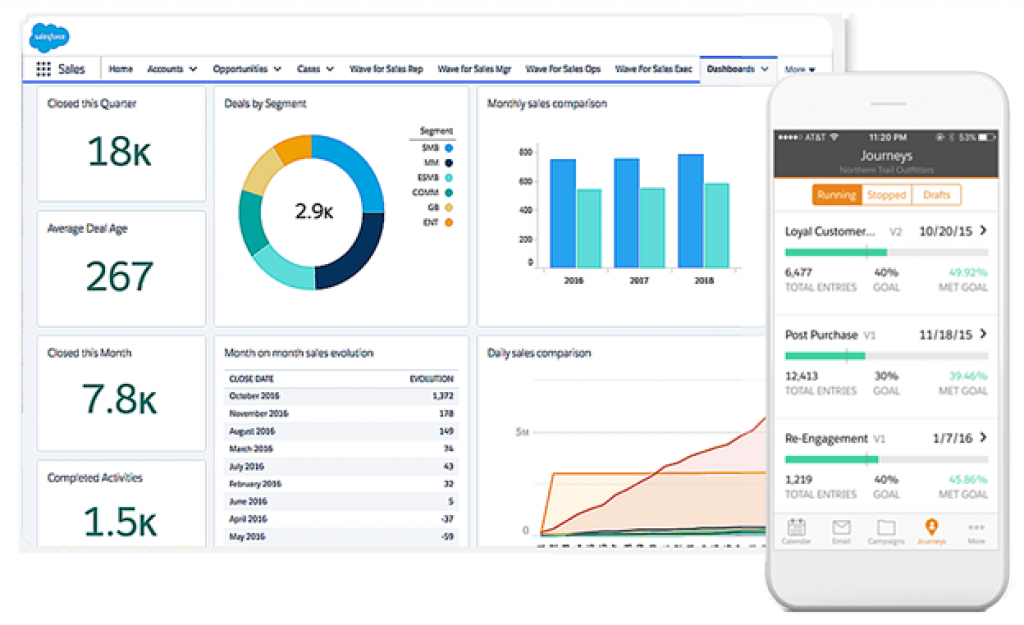
Salesforce’s dedicated mobile app extends its ease of use to remote work scenarios, allowing users to access and manage critical data on the go. This mobile accessibility ensures that sales professionals can stay connected and responsive, regardless of their location.
Additionally, Salesforce offers extensive support resources, including a comprehensive knowledge base, tutorials, and user forums, providing guidance and assistance to users seeking to optimize their experience.
While Salesforce’s extensive feature set may seem overwhelming at first, its user-friendly layout and logical organization enable users to efficiently navigate and utilize its functionalities. With ongoing updates and enhancements based on user feedback, Salesforce continues to prioritize ease of use, ensuring that businesses can harness the full potential of the platform with minimal training and effort.
Salesforce Features:
Salesforce features offer a robust set of tools and functionalities designed to streamline customer relationship management, sales processes, marketing efforts, and customer support. From lead generation and automation to AI-powered insights, Salesforce empowers businesses to enhance productivity, build stronger customer relationships, and drive growth in competitive markets.
1. Lead Management:
Lead Management is a crucial feature of Salesforce, empowering businesses to efficiently capture, track, and nurture leads throughout the sales journey. With Salesforce’s lead management tools, businesses can seamlessly manage leads from various sources, ensuring no potential opportunity is overlooked. The platform allows sales teams to prioritize leads based on predefined criteria, enabling them to focus on the most promising prospects and accelerate the sales process.
Salesforce’s lead management feature enables automated lead assignment, routing, and lead scoring, streamlining lead distribution and ensuring that the right sales representatives engage with the right leads at the right time. The platform’s comprehensive analytics and reporting capabilities provide valuable insights into lead performance and conversion rates, enabling data-driven decisions to optimize lead generation and conversion strategies.
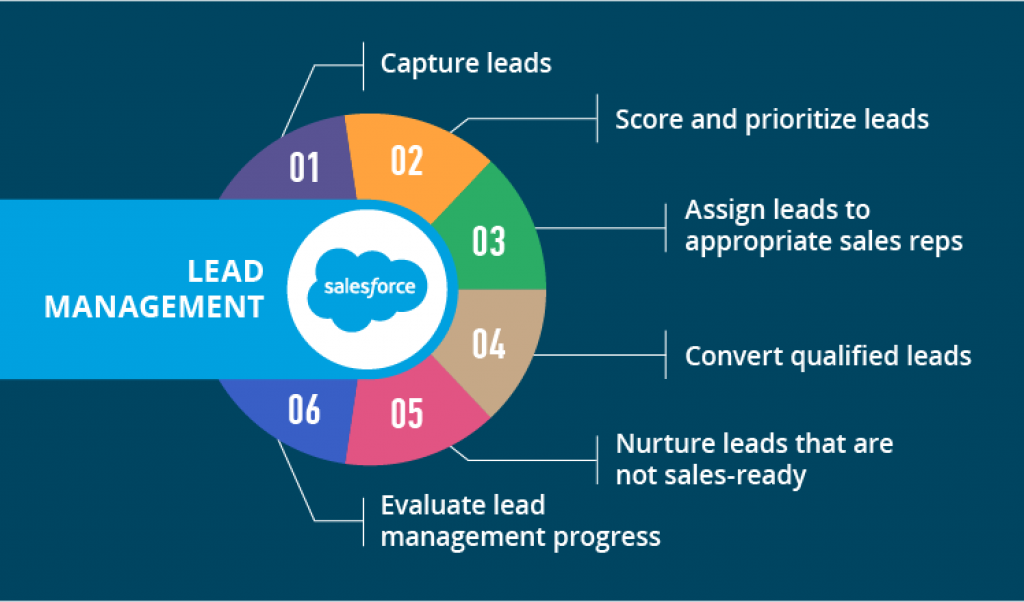
2. Sales Automation:
Sales Automation is a powerful feature of Salesforce that revolutionizes the sales process, streamlining and optimizing various tasks to enhance sales efficiency. With Salesforce’s sales automation tools, businesses can automate repetitive and time-consuming activities, such as data entry, task assignment, and follow-up reminders, allowing sales representatives to focus on building relationships and closing deals.
The platform’s sales automation capabilities extend to opportunity tracking, enabling sales teams to monitor and manage prospects throughout the sales pipeline. Sales representatives can easily access and update opportunity data, ensuring real-time visibility into sales progress and forecasts.
Furthermore, Salesforce’s workflow automation empowers businesses to create automated processes based on predefined rules, triggering actions and notifications when specific conditions are met. This automation minimizes manual intervention, reduces errors, and ensures consistency in sales processes.
3. Analytics and Reporting:
Analytics and Reporting is a powerful feature of Salesforce that equips businesses with valuable insights into their sales performance, customer engagement, and overall business health. With Salesforce’s robust analytics and reporting tools, businesses can generate customizable reports, dashboards, and charts to visualize critical data and key performance indicators.
Salesforce’s analytics capabilities enable businesses to track key metrics, such as sales revenue, lead conversion rates, and customer satisfaction, empowering data-driven decision-making. Users can drill down into specific data points to identify trends, opportunities, and areas for improvement.
The platform’s reporting feature enables businesses to create scheduled or ad-hoc reports, ensuring timely access to essential information. Users can share reports with team members, fostering collaboration and aligning strategies across departments.
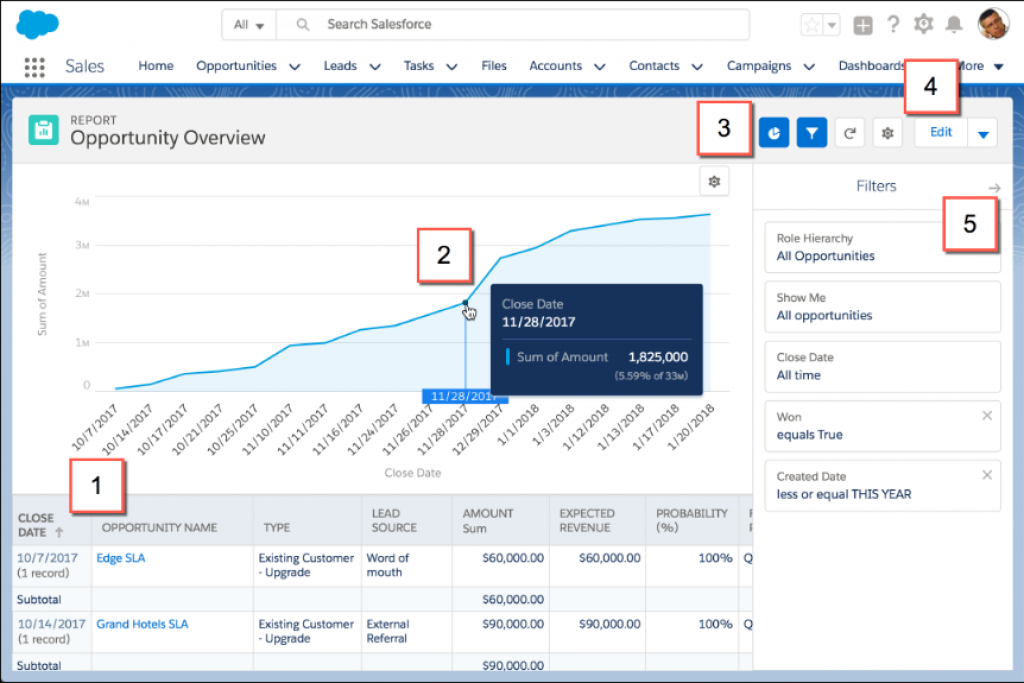
4. Mobile App:
Salesforce’s Mobile App is a game-changing feature that empowers businesses and sales professionals to stay connected and productive on the go. With the dedicated mobile app, users can access critical customer data, leads, opportunities, and tasks from their smartphones or tablets, ensuring real-time insights and responsiveness.
The mobile app enables remote work and field sales by providing access to important information and functionalities outside the office. Sales representatives can update records, log activities, and manage tasks while on the move, fostering efficiency and timely follow-ups.
Salesforce’s Mobile App also facilitates seamless collaboration, allowing team members to communicate and share updates in real-time. With offline capabilities, users can work even in areas with limited internet connectivity, ensuring continuous productivity.
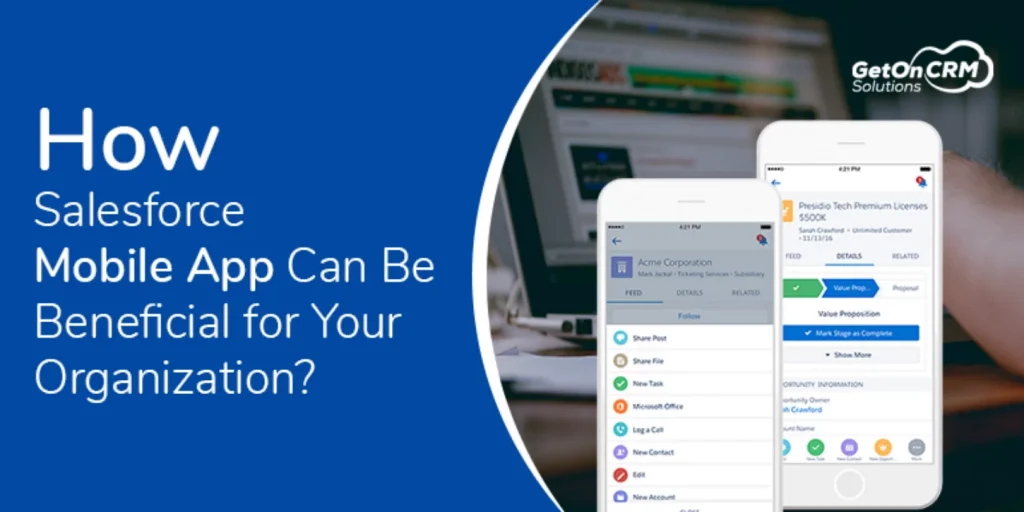
5. Customization and Integration:
Customization and Integration are two powerful features of Salesforce that enable businesses to tailor the platform to their unique needs and extend its functionalities to create a cohesive ecosystem. Salesforce’s customization capabilities allow users to adapt workflows, processes, and data structures to match specific business requirements. Businesses can create custom objects, fields, and page layouts, ensuring that Salesforce aligns perfectly with their existing processes.
Integration is another key aspect of Salesforce’s flexibility. The platform seamlessly integrates with a vast ecosystem of third-party apps, allowing businesses to extend their functionalities and create a unified platform for various business operations. Whether it’s integrating with marketing automation tools, accounting software, or customer support systems, Salesforce’s integration capabilities ensure a smooth flow of data and processes across the organization.
6. Social Media Integration:
Social Media Integration is a valuable feature of Salesforce that enables businesses to effectively monitor and engage with customers across various social media platforms. With Salesforce’s Social Studio and Social Customer Service, businesses can manage social media interactions, track brand mentions, and respond to customer inquiries in real-time.
Social Media Integration allows businesses to centralize social media data alongside other customer data, providing a comprehensive view of customer interactions and sentiments. This holistic approach helps businesses understand customer preferences, gather feedback, and identify opportunities for engagement and brand advocacy.
Salesforce’s Social Media Integration also facilitates social listening, allowing businesses to monitor industry trends, competitors, and customer sentiments, enabling data-driven decisions and strategic marketing campaigns.
7. Integrations:
Integrations are a crucial feature of Salesforce that allows businesses to create a seamless and unified ecosystem by connecting the CRM platform with various third-party apps and tools. Salesforce’s extensive integration capabilities ensure that businesses can leverage their existing software investments and extend the functionalities of the CRM.
Salesforce integrates with a vast array of applications, including marketing automation tools, email platforms, accounting software, customer support systems, and more. This enables data to flow freely between systems, eliminating data silos and improving data accuracy and consistency.
The flexibility of Salesforce’s integrations empowers businesses to build a tailored tech stack that aligns with their unique needs and processes. With integration, businesses can enhance productivity, automate workflows, and gain comprehensive insights into customer interactions.
8. Workflow Automation:
Workflow Automation is a powerful feature of Salesforce that empowers businesses to streamline and automate routine tasks and processes. With Salesforce’s Workflow Rules and Process Builder, businesses can define specific criteria and actions, triggering automated responses when certain conditions are met.
Workflow Automation helps to increase efficiency, reduce manual errors, and enhance productivity by eliminating repetitive tasks. For example, businesses can automate lead assignment, task creation, and email notifications based on predefined rules, ensuring a seamless flow of information and timely follow-ups.
The flexibility of Salesforce’s Workflow Automation allows businesses to create complex workflows that align with their unique processes. It simplifies complex procedures and ensures that teams can focus on high-value tasks, ultimately driving business growth.
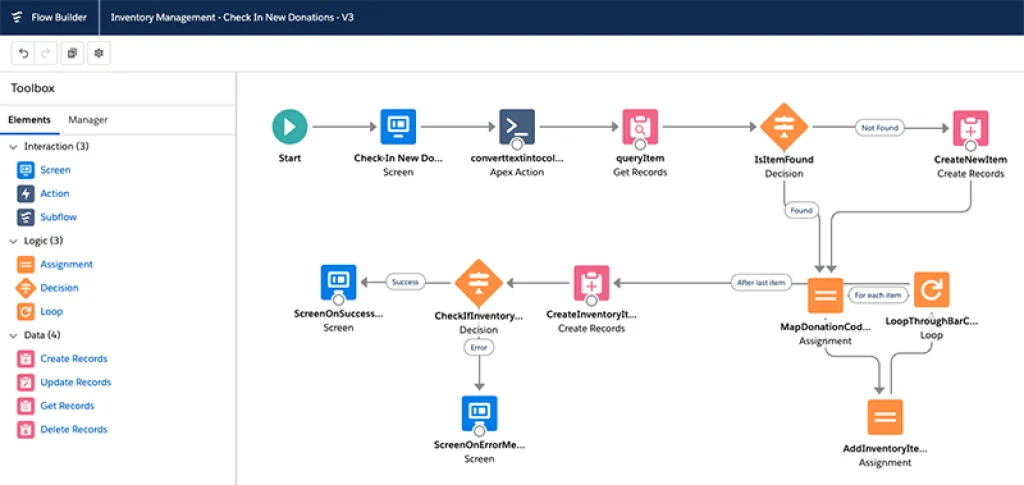
9. AI-powered Insights:
AI-powered Insights is a game-changing feature of Salesforce, driven by its artificial intelligence platform, Einstein. This feature equips businesses with advanced analytics, predictive capabilities, and personalized recommendations to optimize decision-making and customer interactions.
Salesforce’s AI-powered Insights leverages machine learning algorithms to analyze vast amounts of data and identify patterns, trends, and opportunities. It provides sales representatives with predictive lead scores, enabling them to prioritize high-potential leads and focus their efforts on prospects most likely to convert.
Einstein’s AI capabilities extend to customer service, providing intelligent chatbots and case classification, which enhance the efficiency of customer support operations.
Moreover, Einstein provides personalized product recommendations based on customer preferences, enhancing cross-selling and upselling opportunities.
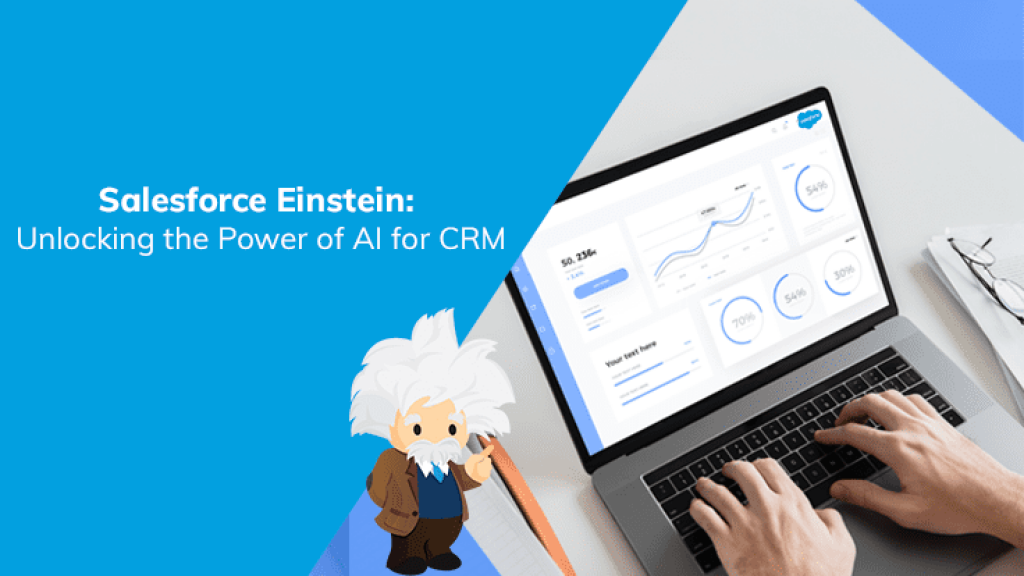
Salesforce Pricing:
Salesforce offers a diverse pricing model to accommodate businesses of all sizes and needs. The pricing structure includes various tiers with different features, enabling businesses to choose the plan that best suits their requirements and budget.
The entry-level plan, Essentials, is designed for small businesses and startups and provides core CRM functionalities at an affordable price point. As businesses grow, they can upgrade to the Professional plan, which adds advanced features like workflow automation and forecasting.
For larger businesses with more complex needs, the Enterprise plan offers comprehensive CRM capabilities and AI-powered insights with Salesforce’s Einstein. The Unlimited plan, tailored for large enterprises, provides unlimited customization options and 24/7 support.
Salesforce pricing also depends on the number of users, with higher user counts usually resulting in a lower per-user cost.
It’s important to note that while Salesforce’s feature-rich plans can be powerful tools for businesses, the cost can be relatively high, especially for small or growing companies. It’s crucial for businesses to carefully evaluate their needs and budget before selecting a Salesforce plan to ensure they make the most of the platform’s capabilities while staying within their financial means.
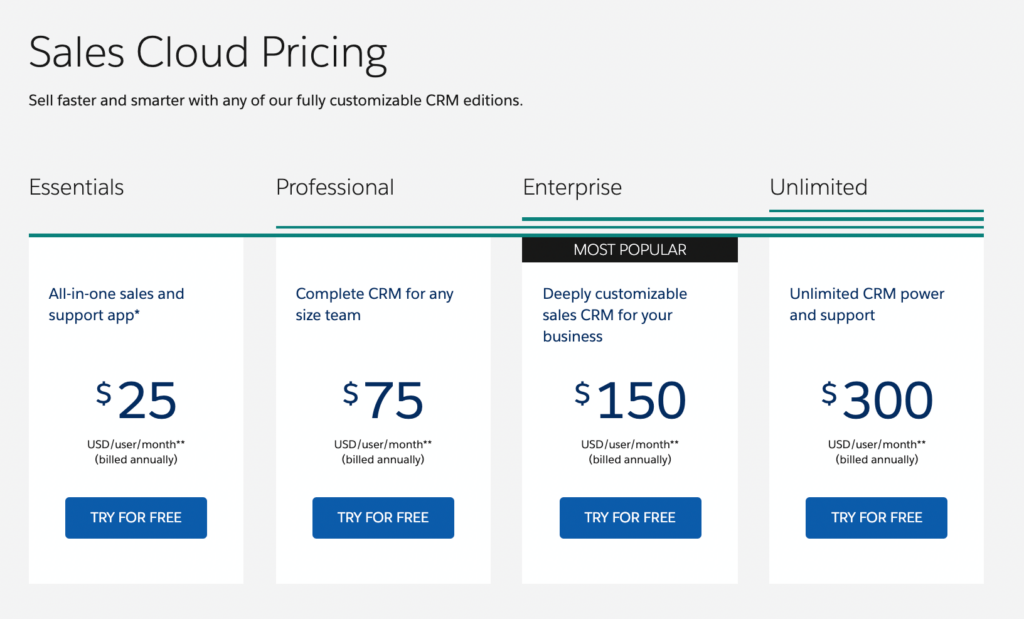
Salesforce Customer Support
Salesforce is known for its strong commitment to customer support, offering a range of resources and services to assist users in maximizing their CRM experience. The company provides various support options, including phone support, email support, and an extensive knowledge base.
Salesforce’s online help center offers a wealth of information, including user guides, video tutorials, and community forums, enabling users to find answers to common questions and learn from other users’ experiences.
For more personalized assistance, Salesforce offers different support plans with varying levels of coverage, ranging from standard support to premium support with faster response times and dedicated support teams.
Salesforce also hosts events and webinars to keep users updated on the latest features, best practices, and industry trends.
Overall, Salesforce’s customer support is highly regarded for its responsiveness and dedication to assisting users, ensuring that businesses can make the most of the platform’s capabilities and achieve their CRM objectives with confidence.
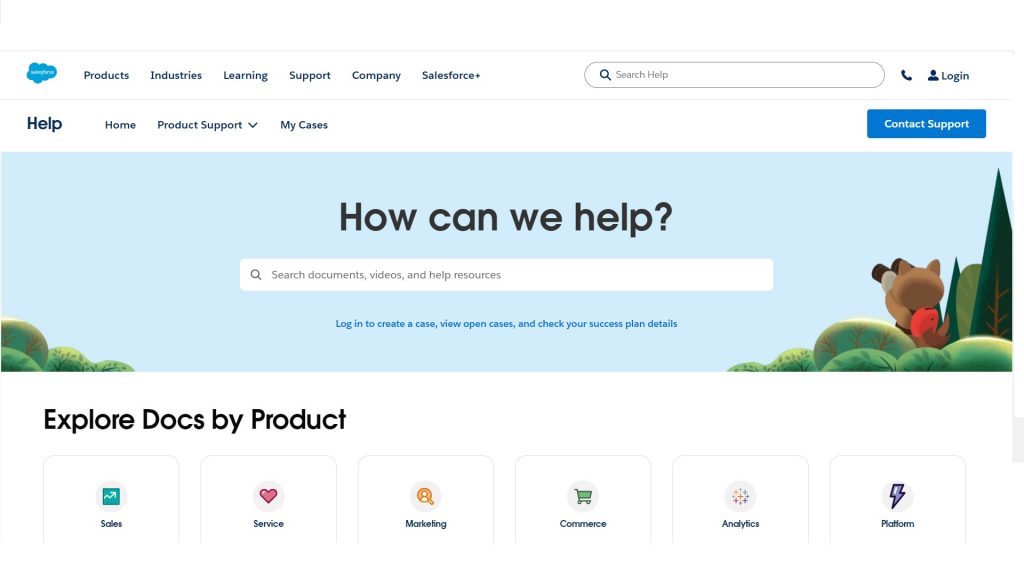
Salesforce vs. Competitors
In today’s highly competitive business landscape, Customer Relationship Management (CRM) software plays a pivotal role in enhancing customer interactions and streamlining sales processes. As the market leader, Salesforce faces tough competition from other prominent CRM solutions. This comparison delves into the strengths, weaknesses, and unique features of Salesforce and its key competitors, providing businesses with valuable insights to make informed decisions when choosing the CRM platform that best aligns with their needs and objectives. From feature sets to pricing structures, this analysis sheds light on the CRM landscape and helps businesses select the most suitable solution to drive growth and customer success.
Salesforce vs. HubSpot CRM: Salesforce and HubSpot CRM are two popular CRM solutions, each offering unique strengths. Salesforce is an industry-leading platform, that provides comprehensive functionalities, customizable workflows, and robust analytics with AI-powered insights. It caters to businesses of all sizes, but its pricing can be higher for small companies. On the other hand, HubSpot CRM is user-friendly, ideal for small to mid-sized businesses, and offers a free version with basic features. While Salesforce excels in scalability and AI capabilities, HubSpot CRM focuses on inbound marketing and seamless integration with HubSpot’s marketing and sales tools. The choice between the two depends on business size, needs, and budget.
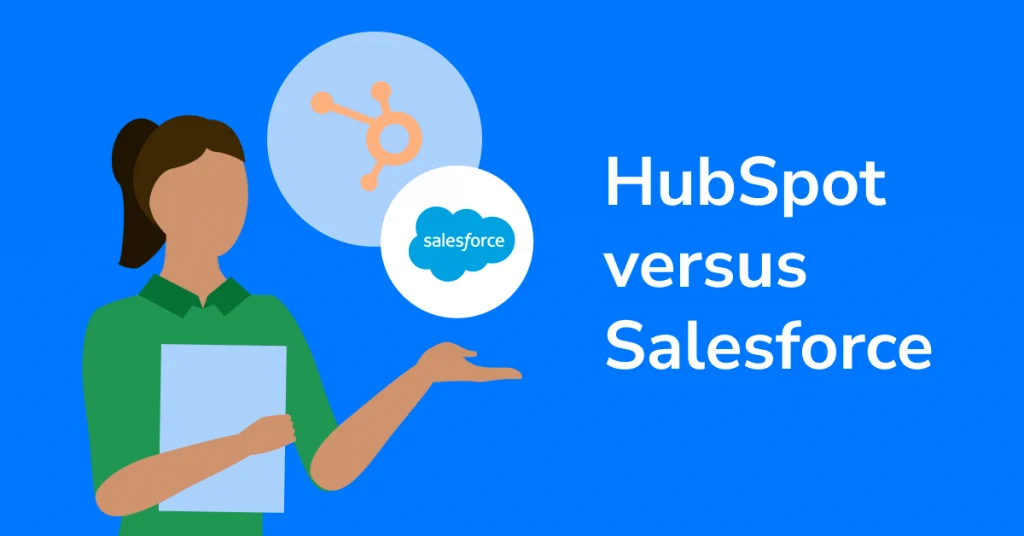
Salesforce vs. Zoho CRM: Salesforce and Zoho CRM are two leading CRM solutions, each with its distinct features and advantages. Salesforce is renowned for its comprehensive functionalities, scalability, and AI-driven insights through Einstein. It caters to businesses of all sizes but can be more expensive. Zoho CRM, on the other hand, offers a cost-effective solution with a wide range of features suitable for small to mid-sized businesses. While Salesforce is known for its extensive integrations and customization options, Zoho CRM provides an intuitive interface and seamless integration with other Zoho products. The choice between the two depends on the specific needs, budget, and size of the business.
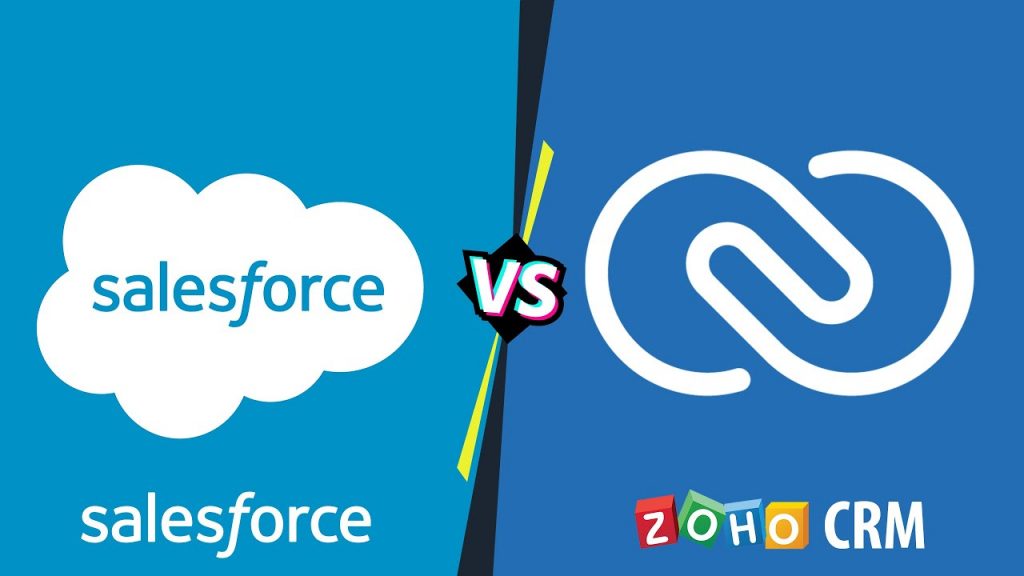
Salesforce vs. Freshsales: Salesforce and Freshsales are two popular CRM solutions with distinct features. Salesforce is an industry-leading CRM platform, offering comprehensive functionalities, scalability, and AI-powered insights through Einstein. It caters to businesses of all sizes but can be more expensive. Freshsales, on the other hand, is a user-friendly and affordable CRM designed for small and mid-sized businesses. It provides a straightforward interface, sales automation features, and customizable workflows. While Salesforce excels in its extensive integrations and enterprise-level capabilities, Freshsales is an excellent choice for smaller businesses seeking an easy-to-use CRM with essential sales functionalities.
The Final Verdict
The final verdict on Salesforce is that it is undoubtedly a powerful and comprehensive CRM solution, offering a wide range of features and capabilities to businesses of all sizes. Its extensive functionalities, customization options, and AI-powered insights through Einstein make it a top choice for enterprises looking to streamline their sales, marketing, and customer support processes.
However, Salesforce’s pricing can be a concern for smaller businesses and startups, as its higher costs may not be feasible for all budgets. Additionally, the platform’s complexity may lead to a steeper learning curve for users, necessitating proper training and support.
Ultimately, the decision to choose Salesforce depends on the specific needs and resources of the business. For companies seeking a robust CRM with advanced capabilities and the ability to scale with their growth, Salesforce remains a dominant player in the CRM market.
Frequently Asked Questions:
Q1.What is Salesforce?
Ans: Salesforce is a leading Customer Relationship Management (CRM) software that helps businesses manage customer interactions, sales processes, marketing efforts, and customer support in a unified platform.
Q2. How can Salesforce benefit my business?
Ans: Salesforce can benefit your business by centralizing customer data, optimizing sales processes, enhancing marketing efforts, and improving customer support, leading to increased efficiency, productivity, and customer satisfaction.
Q3.What are the different pricing plans offered by Salesforce?
Ans: Salesforce offers various pricing plans, including Essentials, Professional, Enterprise, and Unlimited, each with different features and capabilities for businesses of different sizes and needs.
Q4. Is Salesforce suitable for small businesses?
Ans: Yes, Salesforce offers pricing plans like Essentials and Professional, which are designed to cater to the needs of small and growing businesses.
Q5. Can I customize Salesforce to match my business processes?
Ans: Yes, Salesforce provides extensive customization options, allowing businesses to tailor workflows, processes, and data fields to match their unique requirements.
Q6. Does Salesforce provide mobile access to the platform?
Ans: Yes, Salesforce offers a dedicated mobile app that allows users to access critical data and functionalities on the go, enabling remote work and responsiveness.
Q7. What integrations are available with Salesforce?
Ans: Salesforce integrates seamlessly with a vast ecosystem of third-party apps and tools, enabling businesses to extend their functionalities and create a unified ecosystem for their operations.
Q8. How does Salesforce handle data security and privacy?
Ans: Salesforce prioritizes data security and privacy, implementing industry-leading measures to protect customer data and comply with data protection regulations.
Q9. Are training and support available for Salesforce users?
Ans: Yes, Salesforce provides various training resources, including user guides, video tutorials, and community forums. They also offer different support plans with varying levels of coverage for personalized assistance.
Q10. Can I try Salesforce before committing to a plan?
Ans: Yes, Salesforce offers a free trial for some of its plans, allowing businesses to explore the platform’s features and functionalities before making a decision.

